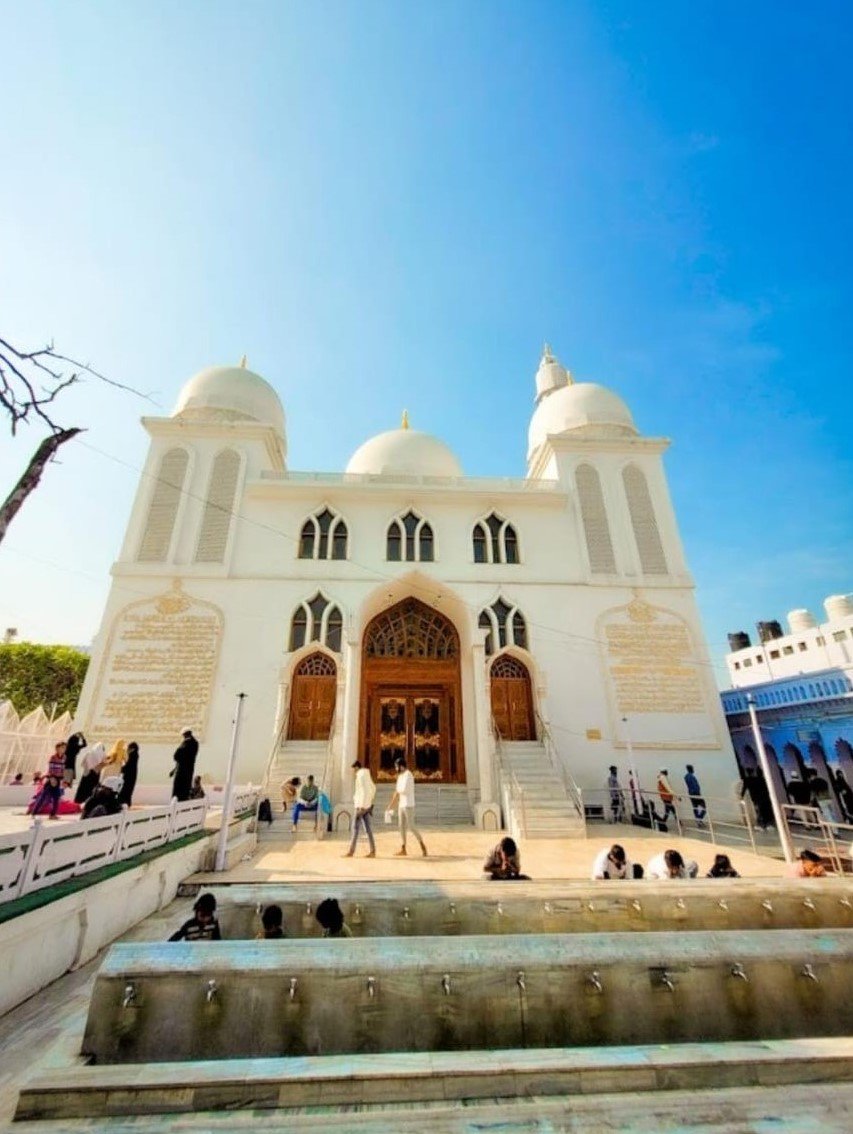*** Wazukhana ***
The Wazu Khanaat Dewa Sharif: A Space for Ritual Purity The Wazu Khana at Dewa Sharif is an essential part of the Dargah complex, providing a dedicated space for performing wazu (ablution) before prayers and other religious activities. Ablution is a vital ritual in Islam, where worshippers cleanse themselves before engaging in acts of worship, such as offering salah (prayers) or entering the sacred area of the shrine.
Key Aspects:
Location and Structure:
The Wazu Khanais strategically located near the mosque and the Mazar (shrine) of Hazrat Haji Waris Ali Shah within the Dargah complex, making it convenient for devotees to perform ablution before prayers or visiting the Mazar. It usually consists of a water tank or taps arranged around a central area, allowing multiple people to perform ablution simultaneously. The design is simple but functional, emphasizing ease of use and access for all visitors.Purpose of Wazu (Ablution):
Wazu is a purification ritual that involves washing the hands, face, arms, and feet. It is a way for worshippers to attain physical and spiritual cleanliness, preparing themselves to stand before God in prayer. Performing wazu symbolizes the cleansing of the body and soul, emphasizing humility and reverence before engaging in worship. At Dewa Sharif, it allows devotees to purify themselves before offering salah or participating in zikr (remembrance of God) and other spiritual practices.
Spiritual Significance at the Dargah:
The act of performing wazu at Dewa Sharif holds deep spiritual significance, especially as it
prepares devotees for their visit to the shrine of Hazrat Haji Waris Ali Shah. It symbolizes the cleansing
of worldly distractions and approaching the saint's resting place with a pure heart and mind.
The proximity of the Wazu Khana to the sacred spaces of the mosque and the Mazar reflects the
interconnectedness of physical purification and spiritual reflection in Sufi practice.
Role During Gatherings:
During special events like the annual Urs (death anniversary) of Hazrat Haji Waris Ali Shah, the Wazu Khana
becomes an even more crucial facility. It serves the large number of visitors who gather for prayers, zikr,
and other religious ceremonies, ensuring that they can maintain the required state of purity.
The Wazu Khana helps manage the flow of devotees, ensuring that the process of ablution is smooth and
accessible to all, thus supporting the overall spiritual atmosphere of the Dargah.
Symbol of Cleanliness and Devotion:
The Wazu Khana at Dewa Sharif is a symbol of the emphasis on cleanliness and
preparation in Islamic worship. It reinforces the idea that spiritual readiness begins with physical
purification, helping devotees to transition from everyday life into a more mindful and focused state.
It also reflects the welcoming nature of the Dargah, providing facilities that cater to the needs of
visitors, making their spiritual journey at Dewa Sharif more meaningful and complete.
The Wazu Khana at Dewa Sharif plays a vital role in the daily routine of worship and
spiritual practice, offering a space where physical and spiritual purification come together. It is a
practical yet deeply symbolic part of the Dargah, underscoring the importance of preparation and purity in
the path to divine connection.


